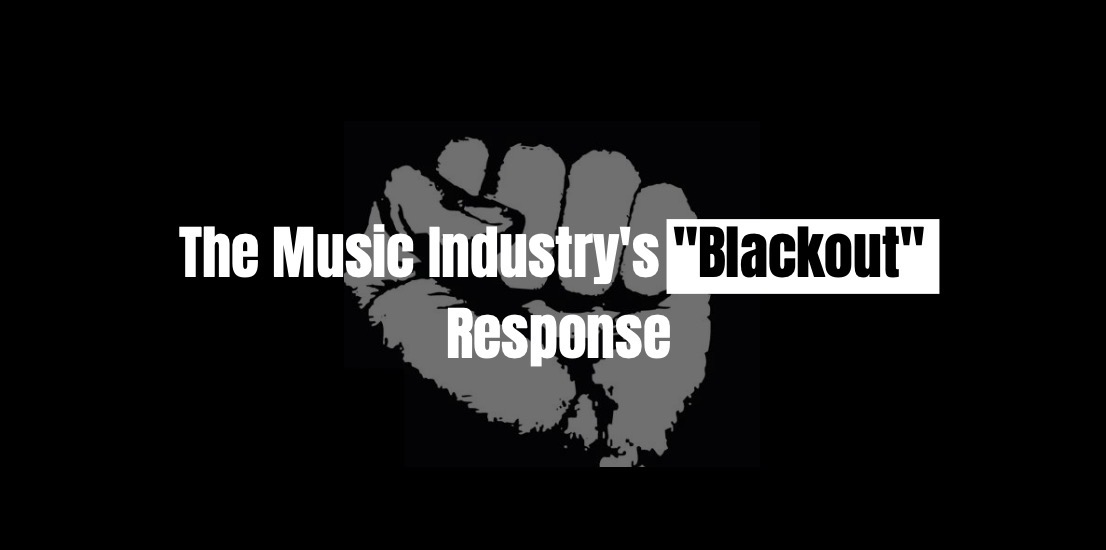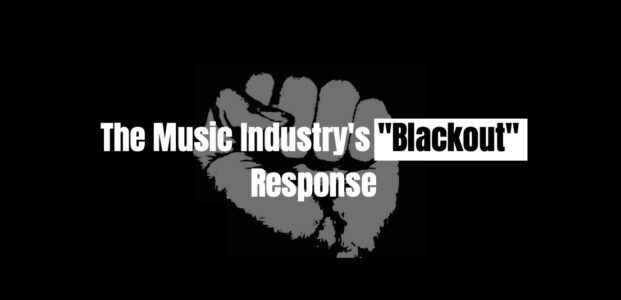If you’ve been on social media at all in the last week, you know what’s been going on in America. We’re fighting two pandemics right now, COVID-19 and racism. In the day following George Floyd’s death, a Minneapolis man who was killed by four policemen, the country erupted in outcry. The public’s response to Floyd’s murder led to multiple social media movements, including #JusticeforGeorgeFloyd, #ICantBreathe, and of course, #BlackLivesMatter.
This is not the first death caused by police brutality during this pandemic. We have mourned the losses of not only Floyd, but Ahmaud Arbery, Breonna Taylor and many more innocent Black men and women. Nearly every industry has expressed their distaste for the racially charged brutality that is sweeping over America right now. Almost everyone is grieving.
This past Friday, as many artists geared up for their new releases and labels promoted new music, I found myself wondering what work is being done behind the scenes. For an industry that is in-part, built on and sustained by Black culture, why were they seemingly quiet when it came to Black cultural matters? I took to social media, and as it turns out I wasn’t alone in questioning the music industry and their silence. Music Strategist and Consultant, Dennis de Groot (@punchdouble on Twitter) says, “Are major labels planning to donate any money they made off Black culture, or are they just going to release statements of solidarity so they won’t be scrutinized for being silent?”
Singer, songwriter and multi-instrumentalist, Raphael Saadiq took to Instagram to express his disdain for people labeling individuals as looters, yet not recognizing the real looting within the music industry. In an in-feed post labeled “Who You Calling Looter?” he says, “Record Labels are looting. Streaming companies [are] looting…One morning we woke up and music was basically free…”
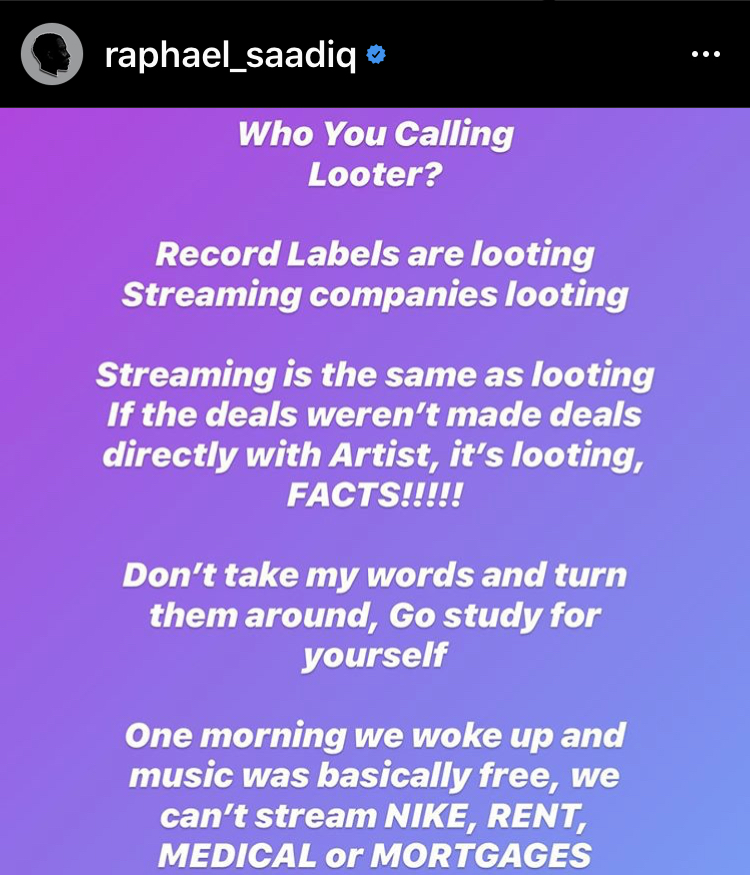
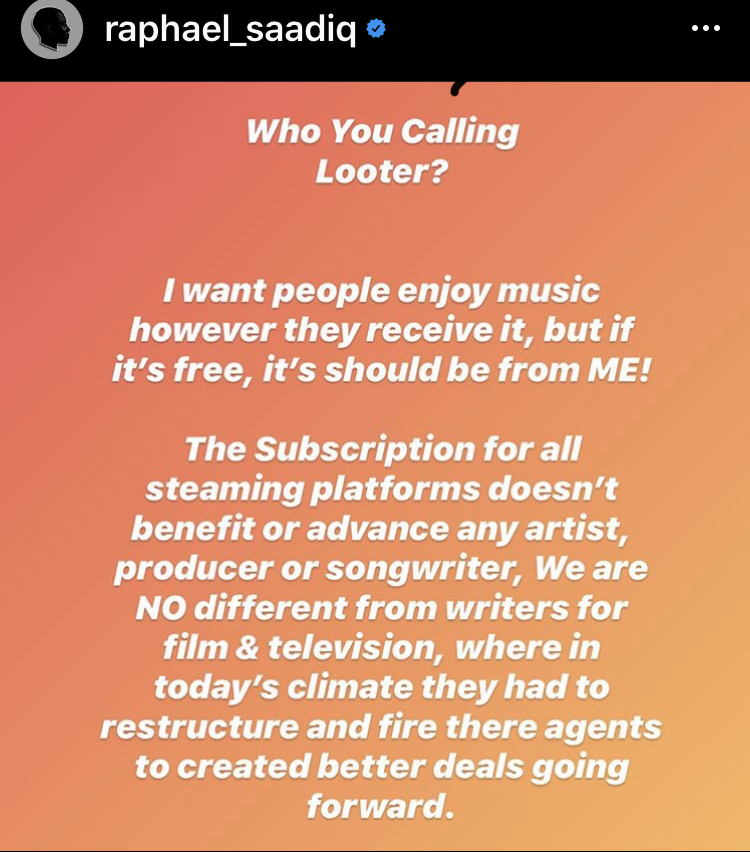
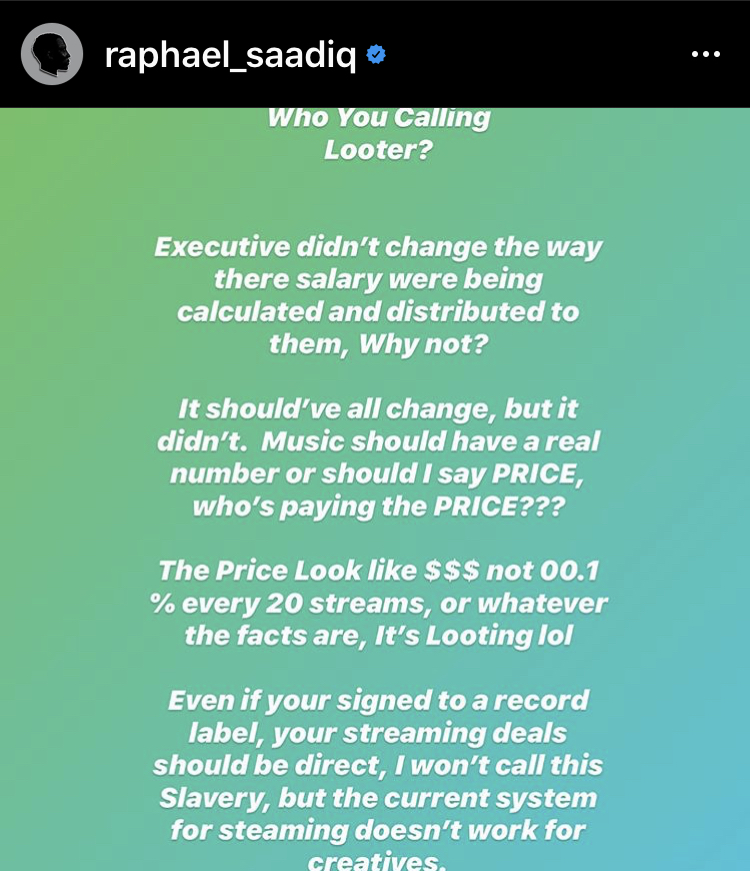
The increased pressure by music consumers on record labels to speak up about the current state of our nation, resulted in what’s being called a “Black Out”.
On May 30th, a number of “industry giants”, including (but not limited to) Columbia Records, Universal Music Group, The Recording Academy, Sony Music, and many more, began to swarm the internet in solidarity with the Black Lives Matter movement. Seen under the hashtag #TheShowMustBePaused, dozens of labels and executives alike began to show their support for social and racial justice in America.
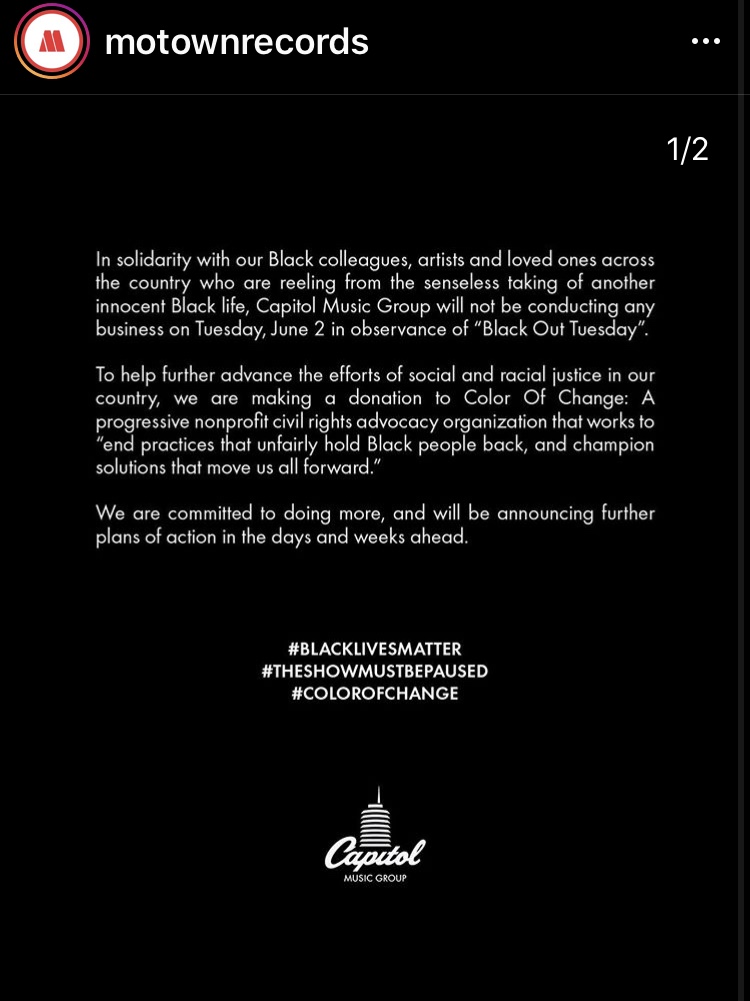
Today, Tuesday, June 2nd, now has a meaning within the music industry. As seen above in Motown Records’ recent Instagram post (in correspondence with all Capitol Music Group’s policies), there will be no business conducted in observance of “Black Out Tuesday,” as industry leaders attempt to make music a safe space for the Black community. Mezz Entertainment will also be observing “Black Out Tuesday” and will not conduct business, in order to recognize and support the efforts of the Black Lives Matter movement.
There is still much to be done on the topic of racial and social injustice within the music industry, but the increased efforts being shown give hope to Black artists, writers and consumers as we progress towards solidarity.
A guide to supporting #JusticeforGeorgeFloyd and the city of Minneapolis (provided by Shivani Chauhan): https://docs.google.com/document/d/1XSvaNjQm_zSHlA-BVKQGlsEThu4D12_Z4h5Oat0LVFk/edit
A guide to donations across America (provided by Kara Jackson): https://docs.google.com/spreadsheets/d/1p7QxOvtvRfHUoMWib8coGHSS8szENXzSjIZKpvp-gtA/edit
**please be sure to NOT label your donations as “BLM” “Black Lives Matter” or “Justice”, as associations with these organizations are being blocked by many sites.
Written by: Piper Page, @piperpage
